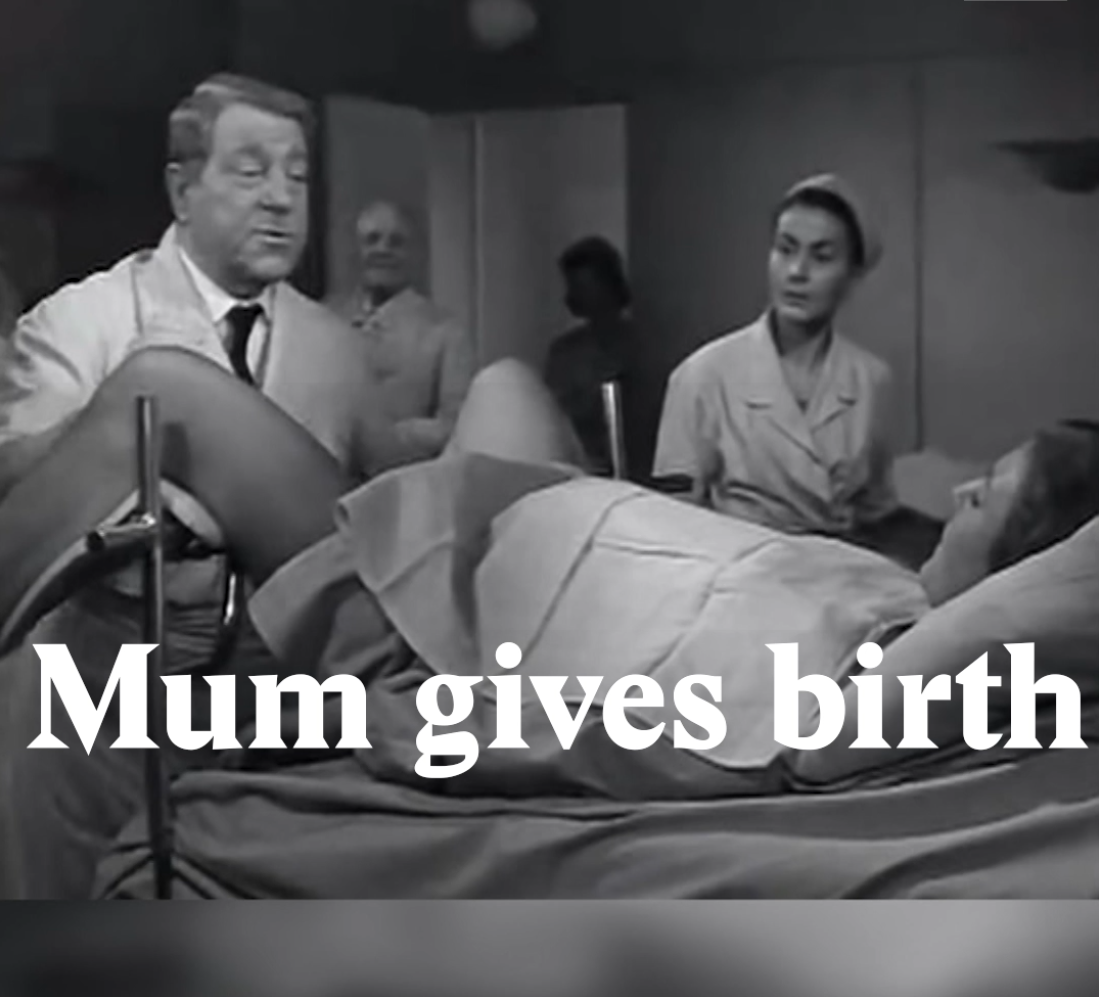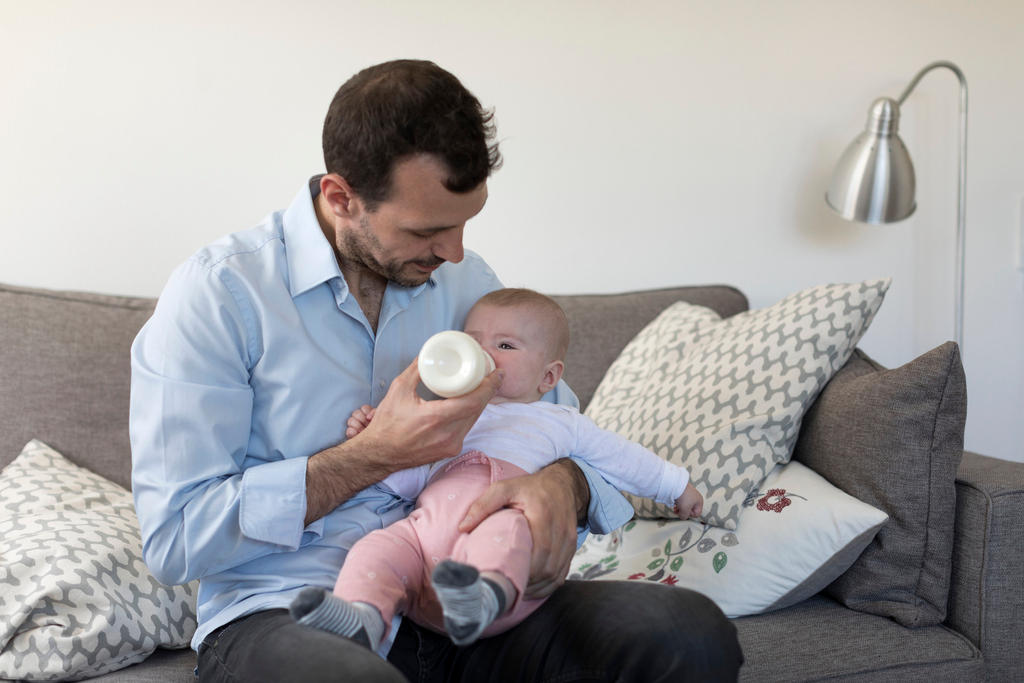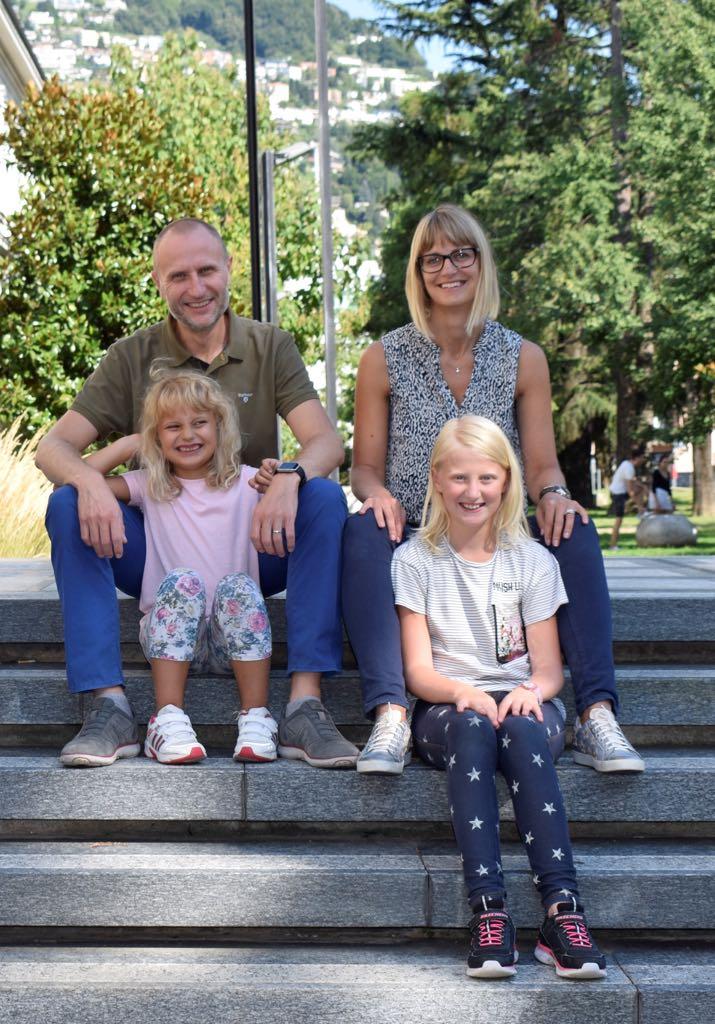Are ten days of paternity leave too much or not enough?

The planned introduction of a statutory paternity leave has been challenged to a nationwide vote. It comes 15 years after working women won the right to claim paid maternity leave.
International comparisons show that Switzerland lags behind European countries where paternity leave and/or parental leave have become standard practice.
The amendment to the Swiss social security scheme is part of a package of nationwide votes on September 27.
What’s at stake?
The legal reformExternal link foresees the introduction of two weeks of paid leave for fathers. The money is to be taken from the state-run income compensation scheme which is part of Switzerland’s social security system funded in equal parts by employers and employees.
The annual costs for paternity leave are estimated at CHF230 million ($245 million).
The money is to cover for 80% of the average loss of earnings for men who will have to make the claim within six months of the birth of their child.
Beneficiaries must have worked for a minimum of five months in Switzerland and paid contributions into the old age pension scheme for at least nine months.
Only biological fathers are eligible for the benefits and adoption cases are excluded.
Unlike many other countries in Europe, there is currently no right to paternity leave for fathers in Switzerland. However, most of them are granted two to three days off under the code of obligations.
Arguments for and against
Opponents argue statutory paternity leave is too much of a burden for small companies. They say it is unfair that the workforce has to finance benefits for a select few. Criticism also comes from fundamental opponents of state intervention.
Supporters say paternity leave is a step towards equal rights and a better work-life balance for families, notably fathers. They also hope it will allow men to break traditional role models.
It has also been pointed out that Switzerland’s is bottom of the table in Europe when it comes to the right of paternity leave.
Why do voters have a say?
As part of the Swiss system of direct democracy, a parliamentary decision can be challenged to a nationwide vote by collecting at least 50,000 signatures within 100 days.
A committee made up mainly of members of the right-wing Swiss People’s PartyExternal link, but also other groups, collected the necessary number of signatures to force a nationwide vote on the issue.
An overwhelming majority of parliament had approved the proposal last September. The amended law is due to come into force at the beginning of next year.
Who are the supporters and the opponents?
Apart from the People’s Party, the Association of Small and Medium-sized Enterprises as well as the Employers’ Association have come out against the statutory paternity leave.
The Swiss Business Federation (economiesuisse), representing large companies, has made no vote recommendation.
Parties from the centre-right to the left of the political spectrum as well as trade unions are supporting the legal reform.
Where does Switzerland stand in comparison?
Unlike many other countries in Europe, there is currently no right to paternity leave for fathers in Switzerland. However, most of them are granted two to three days off under the code of obligations.
Numerous unsuccessful interventions have been made in parliament since the 1990s. In 2017, an alliance of women’s, men’s and family groups as well as trade unions submitted the necessary signatures to force a vote on a proposed change in the constitution. They wanted 20 days (four weeks) of paid paternity leave.
Following the parliament’s approval of a comprise proposal for ten days (two weeks) of paid paternity leave, the alliance withdrew its initiative. But it has reserved the right to re-activate its original proposal if voters reject the parliament’s version at the ballot box.
Left-wing campaigners and a government advisory commission are mooting plans for a 190-day (38 week) parental leave shared between mothers and fathers.
Children are regarded as something of a private matter in Switzerland which is considered particularly traditional when it comes to family models and gender roles.

More
Is it time for paternity leave in Switzerland?

In compliance with the JTI standards
More: SWI swissinfo.ch certified by the Journalism Trust Initiative












Join the conversation!